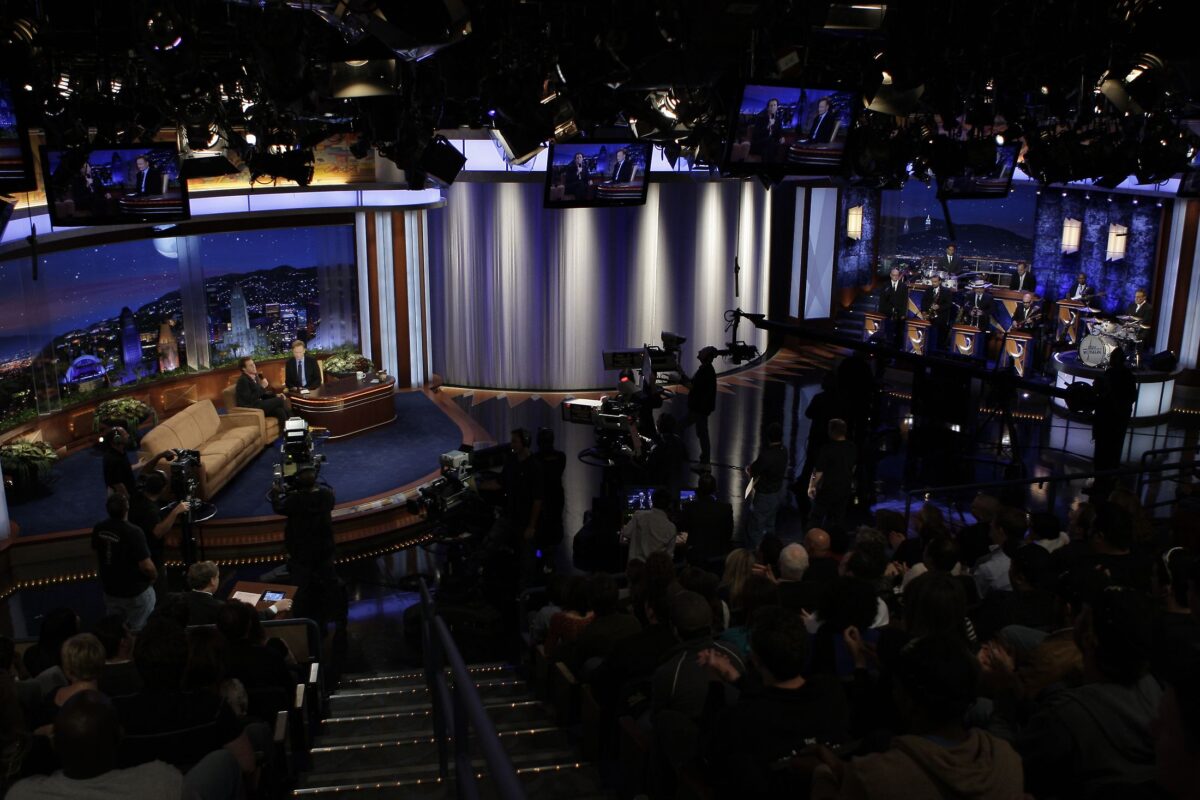(Start Reading from the Beginning: The Dead Writer)
(Previously: Soldiers with Broken Arms)
Debbie Ballard had not expected to stay with the Rollins campaign, much less move to Washington. Her mother had succumbed to cancer three years before. Her student loans had been paid off. She now owned a second home in Georgetown, which she closed on just before the housing crisis and which had somehow appreciated in value despite all the economic volatility. There were certain Beltway bars occupied by politicos in which she was actually feared. She had fallen in love and married Gabrielle Jenkins and hadn’t expected that to happen. Gabrielle, in addition to atoning for the directionally impaired tongue lashings of mediocre men with her exquisite scissoring (Debbie would never go back, even if Gabrielle left her), also understood her in ways that so many others had not. Gabrielle commended the qualities that others had deemed risible. The way that Debbie would hold half of a bagel above her neckline just before spreading cream cheese, which the people she had dated before Gabrielle had ridiculed, was evidence of an instinctive divinity, a quirk that only confirmed Gabrielle’s faith in Debbie’s alacrity. Gabrielle helped her pick out the right sleeveless sheath to wear to a summer soiree and even coached her on ladyboss body language that would always put a dull man trying to challenge her in his rightfully undistinguished place. In many ways, Debbie felt as if she was still pretending, but she did have a knack for sheltering the endless flow of campaign contributions from Rollins’s many fans. She did know how to manipulate sleazy lobbyists. She did have a way of fielding calls from desperate Democrats trying to cut a deal with Rollins. And while Rollins was stupider than anyone truly knew — including the Slate reporter who had tried to take him out after uncovering secret recordings of his bimonthly seminars, along with the quietly settled lawsuits — Debbie knew how to make him seem as if he knew more than he let on. Never mind that she had closely studied Jared Kushner back when the media people had hilariously suggested that he was a calming force who would assuage the unpredictable jerks of the orange menace and had simply pilfered the best bits and ensured that there was no financial trail that deep-dive document searchers would find. If it hadn’t been for Debbie Ballard, Rob Rollins would not now, during the most apocalyptic time in American history, be the junior senator from South Carolina.
The thinktanks all knew that Debbie was the force behind Rollins’s rapid rise. Herschel Walker had tried to hire her. Mitch McConnell. Lady G. She had turned them all down. If only they knew how liberal she’d once been, though not liberal in the ways that countless heathens were now unleashing in public places. She’d truly been shocked by the rise of rampant exhibitionism. Even now, as she jogged on G Street waiting for the blocks of hideous buildings to recede for the promising vista of the Capitol dome, she was still astonished to find a woman going down on a man just outside of Burger King. He was actually shouting “I’m having it my way! I’m having it my way!” And that was the weirdest thing about it. If the new fad of public sex could be compared to an act of revolution, it was decidedly incoherent. On one hand, these anarchist fornicators were desecrating what remained of the franchises by carrying on with their copulation. On the other hand, they adopted the very corporate mantras that were anathema to their professed cause. So you could ascribe a certain passive aggression to the two feral protesters who she saw 69ing in the perfume aisle at Nordstrom Rack. The security guards were too underpaid to remove them. The police were too busy with all the murders to be bothered. And so everyone grew to tolerate all the public sex, much as they turned the other way when some new maniac shot up a school.
She knew she was taking a risk jogging out in the open like this. As the streets became more dangerous and crime hit an unprecedented high, the President had urged women to walk in groups for their own safety. But Debbie Ballard was not someone who wanted to be a victim. She was still in shape. She had to be if she wanted to stay on as the chief of staff for a prominent physical fitness instructor who was now serving on four Senate Committees. She’d taken kickboxing classes and had dabbled in mixed martial arts. Besides, she had one of the new Samsung Surrounders that had become a big hit for the flailing tech giant once the data experts had run the numbers and concluded that one out of every four Americans was likely to commit rape or murder in this new nightmarish epoch. You put contact lenses equipped with an AR interface into your eyes. And you were always aware of the red and green dots of people who surrounded you. The green dots were people without a criminal record. The red dots were those who had some trouble attached — whether it be a reckless tweet from their college days or a scandalous video they had posted to EveryoneFucks.com. Some people actually used the Surrounder to score dates. Because with the Surrounder, you could call up a drop-down menu in the chilly air and check out the social media profiles for every walking and talking dot of ape-descended meat who you might ran into. The Surrounder had been a hit with introverts, although the introverts were more inclined to stay home. It was also useful for those parties in which you forgot the name of someone who you had run into six months before. Debbie and Gabrielle had tried going bareback without the Surrounder one night in which they had to attend a party, but it became clear within ten minutes that their organic brains were no match for the advantages of the overlay. The transhumanists had been right all along. Humans were fated to be enslaved to technology. And maybe you could hole up in the country and allow this state of affairs to pass you by. But you couldn’t stop people from gossiping about each other and looking for any dirt to believe that they were superior.
Debbie had frowned upon the way that some of the Surrounder power users had employed the new tech to geocache the worst people in the world. People who had served long prison terms and who were trying to build new lives were shocked when these public shaming cultists knocked on their door and filmed them with their phones for all the Internet to see. So people weren’t as free to live their lives as they had before. Samsung lobbyists had flooded the Senate with money (even Rollins had taken some of it) to ensure that there would be no legislation outlawing the use of the Surrounder.
Unemployed nobodies who styled themselves “journalists” had once doxxed criminals on Reddit threads, but the Surrounder had turned the game into a hunt. Years before, they had spent long afternoons hunting avatars with Pokémon Go. But finding human lowlifes out in the real world was far more fun, although the suicide rate had quadrupled in the last five years because some of the victims didn’t have a sense of humor.
This was one of the reasons why the masonry business had taken off and why gated communities were now more ubiquitous. The idyllic suburban rows with open front laws had been replaced with ugly brick walls fortified with barbed wire and motion-sensitive machine guns. And when Debbie jogged through a residential area, she still winced at the sinister whirs of 50 caliber HMGs, the barrels that followed her along the sidewalk. Her old friend Sophie had been paralyzed from the waist down because one of the surveillance weapons had malfunctioning when she went for a run. And even Gabrielle had urged Debbie to jog in Montrose Park rather than the downtown sprawl. The park did, after all, have its own set of rules and was only open to Georgetown residents and was regularly patroled by men who didn’t think twice about mowing down a troublemaker. And nobody fucked there.
But Debbie had always been a people person. And her jogs and wanderings in DC, however sketchy, was what helped her to understand human psychology. And with the constituents who regularly pestered Rollins, she needed to be able to anticipate what they might say or do. Admittedly, this was becoming easier. Because everyone was more scared. The repertoire of social moves had drastically attenuated, particularly since the green dots feared that they would turn into red dots. The Surrounder algorithm was, like all algorithms, driven by machine learning so that the tech moguls wouldn’t have to pay human eyes to correct the mistakes. Even the Supreme Court — with its seven staunch conservatives and the two open slots that needed to be filled after the recent assassinations — sided with Samsung, pointing out that the Constitution contained no express right to privacy. Sure, you could still watch porn and you could still fuck out in the open. (In a move that caused a veteran SCOTUSblog reporter to lose his gasket, the Court had used the Fourteenth Amendment to point out that prohibiting people from fucking in public deprived them of their constitutionally protected liberty.) But decency was more of a theoretical idea rather than the accepted practice.
“WARNING!” said the Surrounder’s overfriendly voice, “TWO REDS APPROACHING FROM THE SOUTH!”
Maybe she was being overly cautious with her warning settings, but she recalled how three yahoos — one of them was the father of one of his teenage victims — had murdered Matt Gaetz on a live stream back in 2025.
She spun around and adopted an orthodox stance. Two men, both gaunt and dressed in threadbare coats, approached her.
“Whoa, lady!” said the first man.
“Stand back!” boomed Debbie.
“Can’t we even say hello?” asked the second man.
“If you try anything, I will fuck you up. Surrounder, display profiles.”
“RONALD COLSON. FORMER CONTRIBUTOR FOR THE RED GAZETTE. FIRED AFTER SEXUAL ASSAULT ALLEGATIONS SURFACED ON TIKTOK. PRESENT STATUS: UNEMPLOYED. PRESENT NET WORTH: NONEXISTENT.”
“Hey, man, I was innocent,” said Ronald.
“GARY BOYLE. DARK WEB PROVOCATEUR, KNOWN DOXXER, BANNED FROM FEDIVERSE, OKCUPID, AND DOORDASH.”
“Wow,” said Debbie. “How do you get banned from Doordash? They deliver to everyone.”
“Dude,” said Ronald. “I didn’t know you were banned from Doordash.”
“Shut up!” said Gary. “So I can’t get a pizza delivery. Who cares? It’s not like anyone can afford takeout these days.”
“What do you two creeps want?”
“We want to help,” said Gary.
“You stalked me?”
“We know you work for Rollins,” said Ronald. “Is it okay if I grab something under my coat?”
“Surrounder,” said Debbie, “are these men armed?”
“NEGATIVE,” replied the Surrounder. “BUT BOTH MEN SCORE HIGH ON THE PSYCHOLOGICAL MANIPULATION INDEX.”
“Psychological manipulation index?” asked Gary. “Wow, they track that too?”
“Apparently you didn’t get the latest update,” said Debbie.
“You know,” said Ronald, who moved in a slow and belabored way, “I miss the old days. Before the Surrounder. You didn’t have to second-guess people.”
“It’s a dangerous time to live,” said Debbie. “What do you want?”
“Hang on,” said Ronald. He extracted a book and tossed it to Debbie. Debbie’s reflexes were heightened. So she caught it.
“You’re going to want to read this,” said Gary. “Particularly the two chapters on Rollins.”
Debbie looked at the cover. There was a picture of Paul Van Kleason on the cover. His fingers were steepled as he surveyed two pairs of bare legs that had been swiftly Photoshopped in by some underpaid book designer. Paul Van Kleason. The writer who had died five years ago, The book’s author was Ali Breslin. Ali Breslin? That crazy chick who wrote for The Myrtleist way back when? She was still bouncing around.
Debbie laughed.
“This looks like sensationalistic trash.”
“It’s not,” said Ronald.
“Ali Breslin won the Pulitzer Prize a few years ago.”
“Bullshit.”
“Google it if you don’t believe us.”
She did. And, well, holy shit, these two dudes were right. She also conducted a provenance scan on the book. And, yes, it too was legit.
“Why would anyone care about a dead writer?”
“Trust me,” said Gary. “They’re going to care.”
“Why? Have you noticed the world around you? More sex and violence. More depravity. America is a joke. Most people have given up.”
“No, they haven’t,” said Ronald. “They’re just waiting for a savior to get us back to normal.”
“And the junior Senator fro South Carolina is well-positioned to be that savior.”
“This book hasn’t been published.”
“It hits bookstores next Tuesday.”
“And how did you get a copy?”
“Well, I know a guy who knows a guy who knows a guy…”
“What do you want?”
“We haven’t eaten in three days.”
“So you want me to buy you two creeps a meal.”
“Well, a little more than that.”
“I’m not going to fuck you, if that’s what you’re thinking,” said Debbie. She held up her hand and flashed her ring. “You see? Happily married.”
“That hasn’t stopped people before,” laughed Gary.
“We don’t want to fuck you,” said Ronald.
“I’m confidently asexual,” said Gary.
“And so am I.”
The Surrounder confirmed that neither Ronald nor Gary had fucked anyone in the last three years. Dating history was still a little buggy, but the algorithm was getting better on the sexual partner flowcharts with each new update.
“Okay,” said Debbie, “but we have to meet somewhere where we can’t be tracked by Surrounders.”
“You’d willingly take us to a frozen zone?” asked Gary, who was incredulous.
“It seems I have no choice.”
(Next: Dolly Parton is Not Dead)
(Word count: 20,764/50,000)




